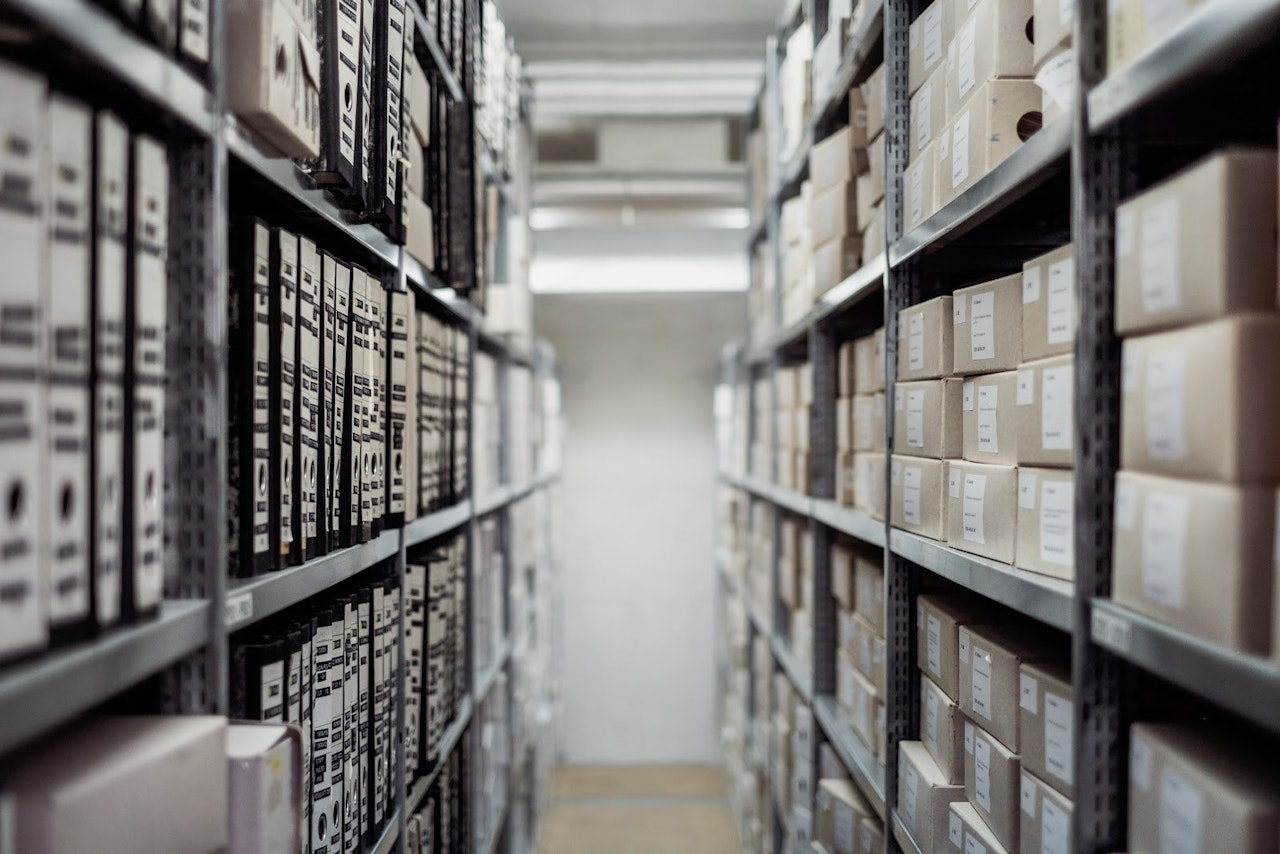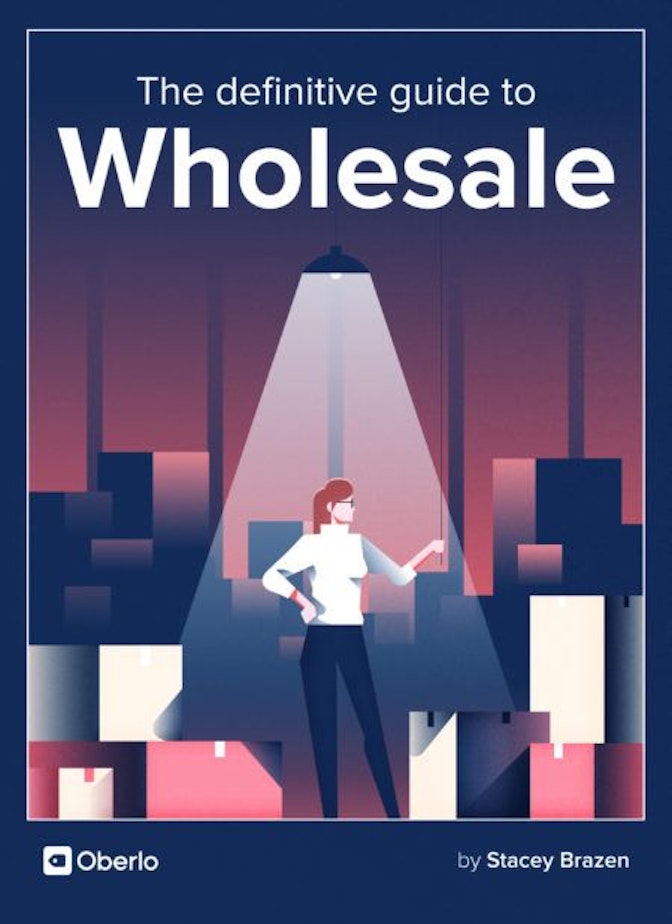After spending many years in Asia, I wasn’t particularly shocked to discover that alongside North America and Western Europe, Asia Pacific is one of the three largest geographic markets by consumption in the retail and wholesale market.
Saying that, I was shocked to learn that as of 2017, Asia Pacific accounted for $9.5 trillion of the overall market.
Crazy, right?
In this definitive guide to all things wholesale, you’ll learn everything you need to know to help you navigate the wholesale market, so you can buy inventory quickly, easily, and safely.
Equally importantly, you’ll discover what your legal obligations are as an ecommerce business owner – so you don’t fall foul of the law, plus much, MUCH, more.
So let’s get started.
In this chapter, we’ll first establish a clear wholesale definition and meaning, by examining the different types of wholesalers you’ll run across as you develop your ecommerce business.
As you’ll see, there are a wide variety of wholesalers out there. In order to make sure you get the best product at the best price, as quickly as possible, you need to have a thorough understanding of the wholesale marketplace in its entirety.
Next, we’ll look at look at emerging trends within the wholesale market and ecommerce industry, such as the simplification in global shipping with the introduction of services like ePacket, and many other improvements that will see this industry continue to grow.
This is all good news if you’re planning to launch or grow your ecommerce business any time soon. So let’s get started.



1.1 Three Wholesale Market Trends to Pay Attention to
Before we dive into those marketplace trends, let’s take a look at the differences between wholesale vs retail. They both operate a little bit differently.
Retailer vs Wholesaler Definition
→ Click Here to Launch Your Online Business with Shopify
| Wholesale Characteristics | Retail Characteristics |
| A wholesaler sells large quantities of products to retailers for a profit | A retailer sells products directly to their customers for a profit |
| You must have a licence to shop with a wholesaler | Anyone can shop with a retailer |
| There are minimum order quantities when buying from a wholesaler | You can buy any amount of product you want when buying from a retailer |
| Wholesalers operate a B2B (business to business) business model | Retail is a B2C (business to consumer) business model |
Some brands operate a wholesale and retail arm of their business. This might even be something you want to consider as your business grows.
Let’s examine a few ecommerce and wholesale market trends and how they might affect you.
Improved Automation
Business owners are demanding to work more effectively and efficiently, leading to great improvements in automation and tracking options. One reason myself and many others love Shopify is they have a wide range of apps that will help you streamline and optimise operations.
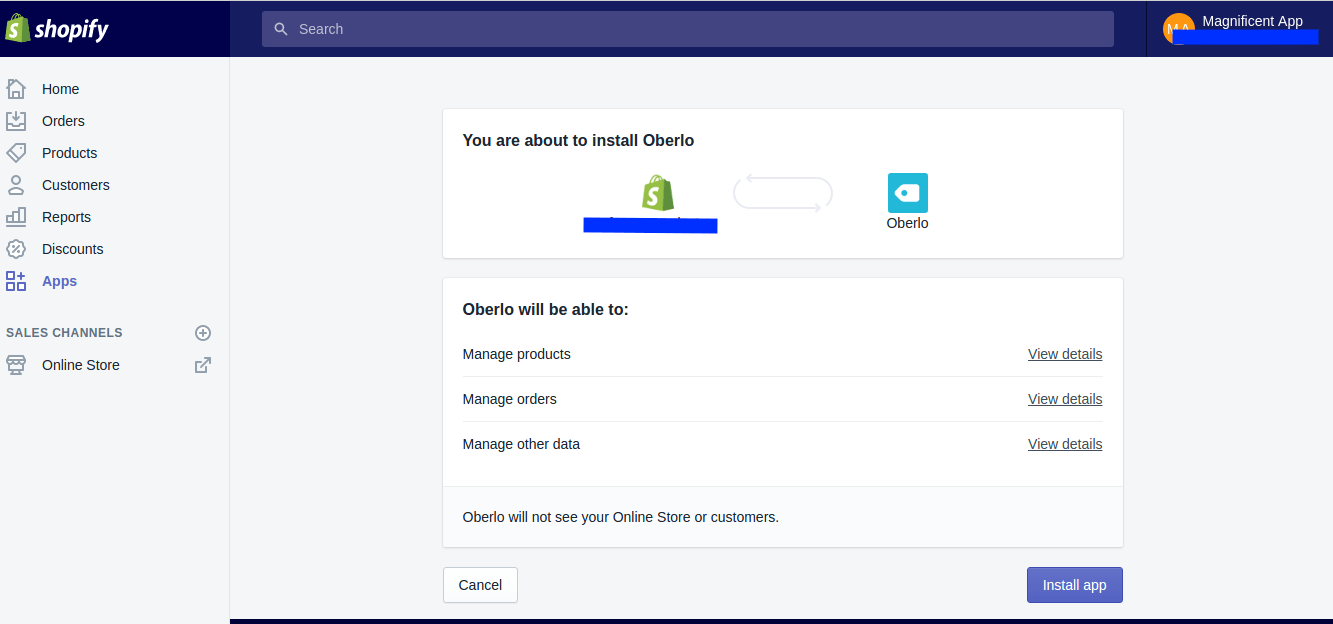
Up until a few years ago, wholesale business operations and logistics used to be done manually. If you found a wholesale supplier who had an API you could connect to – to help you streamline your orders, stock numbers, returns and pricing it would feel like you’d hit the jackpot.
In 2018, this type of automation is becoming somewhat mandatory. And developments in AI and machine learning will only see these processes become even more streamlined and predictive of your needs.
In the long run this will allow for improved planning, cheaper operational costs, and easier operations management.
Buyers Are Attending Fewer Trade Shows

Back in the day, everyone knew you had to attend the popular wholesale trade shows if you wanted to get your hands on the best products.
At that point, even the big players in the wholesale marketplace had user-unfriendly and unattractive websites. The only way to really see what was on offer was to put your best walking shoes on and get to the trade show early.
While trade shows are still a crucial element of the wholesale marketplace, vendors no longer need to solely rely on them to find merchandise.
Yes, lots of crummy websites still exist in the wholesale marketplace. As you’ll see below, this toy wholesaler doesn’t exactly fill you with excitement and optimism. Luckily, if you do your research, it is possible to find many cool vendors from the comfort of your own home.
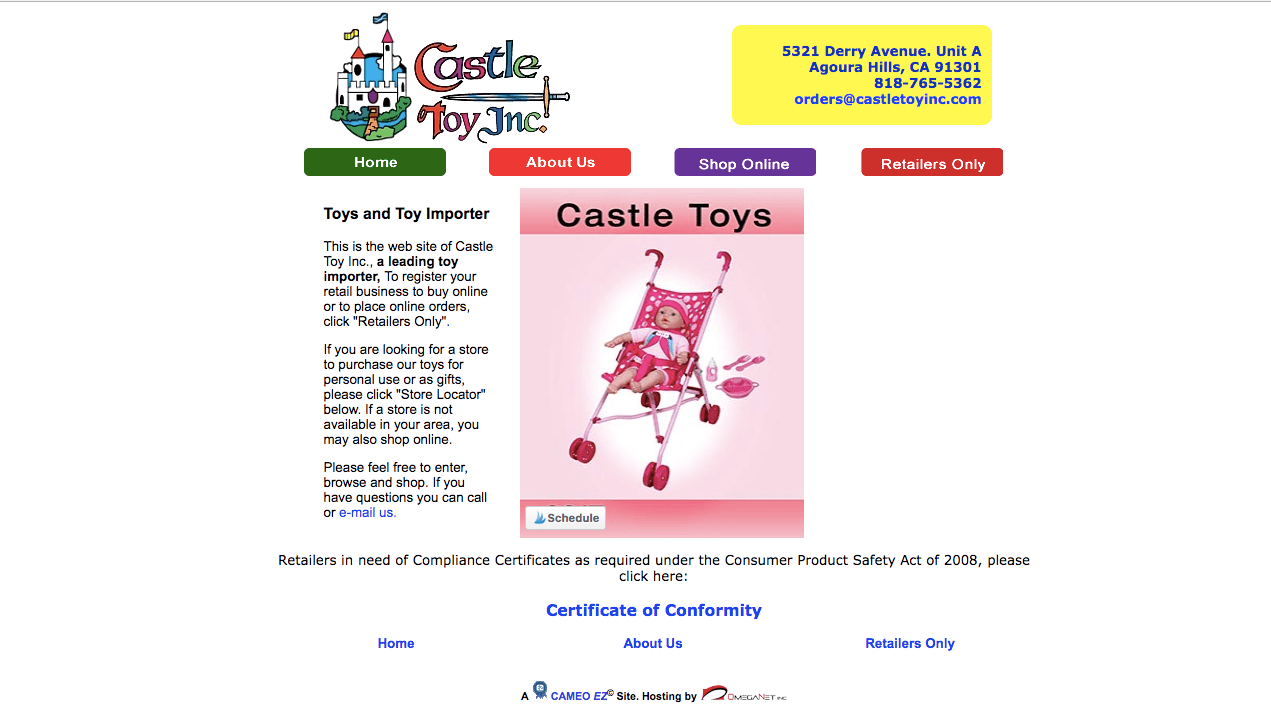
Change in Buyer Cycles
Wholesale buying is no longer a seasonal affair, with a mad rush at some times of the year and huge slumps at others.
The way consumers buy has changed. This change in how we spend money has caused the rapid increase in ecommerce conversions that business owners are enjoying right now.
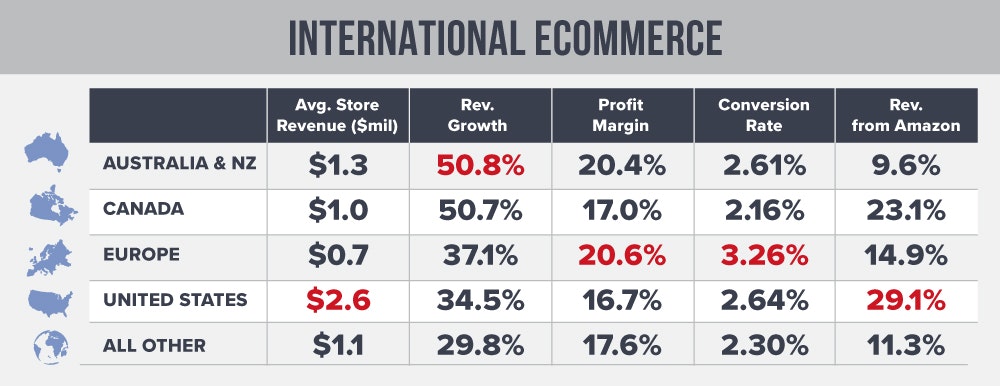
Traditional fashion buying cycles of spring/summer and fall/winter are now a thing of the past, and many retailers are opting to introduce new lines all year round. This creates the need for an expanding pool of new and innovative merchandise, so retailers can have something fresh to offer their customers.
Manufacturers and wholesalers in the wholesale market are responding to this demand by improving the quality and diversity of their product lines, and offering improved shipping options.
1.2 Wholesale Meaning: What is a Wholesale Manufacturer?
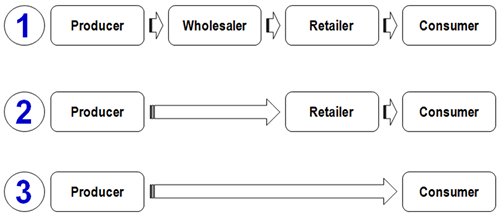
Let’s look at the differences between a wholesaler, a distributor, and a manufacturer.
Manufacturers and producers are pretty much the top of the pyramid.
While they do work with wholesale-to-retail businesses, depending on what they sell and how much of it, they may only work with distributors and sales reps.
The reason for this is, many manufacturers are not equipped to manage the logistics of retail sales, and working with trusted distributors removes that responsibility. More on distributors in a moment.
Unless you’re developing a private label brand or launching a new product line, you’ll most likely work with retail or merchant wholesalers, rather than manufacturers.
1.3 Wholesale Meaning: What is a Wholesale Distributor?
The role of the wholesale distributor is often overlooked. Wholesale distributors are important because they make sure merchant wholesalers get access to the latest and best products for the best prices.
Without them, it would be a lot trickier to get vital commodities and goods to the marketplace such as foodstuffs, furniture, and industrial supplies.
Sure, some manufacturers have a separate arm of the business which focuses purely on distribution. But most work with distribution centres to get their products to the right people. It’s also not unusual for distributors to insist on an exclusivity agreement which puts limitations on the factories they partner with.
1.4 Wholesale Meaning: What Makes Distributors so Important?
Certified wholesale distributors manage shipments for the manufacturer of a product. With a warehouse and fulfillment team behind them, they ship bulk orders direct to the merchant wholesaler, and also direct to larger retailers.
Because wholesale distributors absorb the shipping costs of the manufacturer to the retailer – this means they’re incredibly sensitive to things like changes in the cost of fuel and transportation costs.

Why?
The key to successful wholesale distribution is the ability to acquire high quality, high demand merchandise at low prices.Then, resell this product in volume– adding a profitable markup.
Working with a network of sales reps, the wholesale distributor is the proverbial middleman as they are the vital link between manufacturers and retailers.
[highlight]Expert Tip: If at all possible work directly with a certified wholesale distributor as this is where you’ll get the absolute best wholesale prices.[/highlight]
1.5 Wholesale Meaning: What is a Retail Wholesaler?
The full service wholesaler offers an end-to-end service, selling any and everything from bed linen to wholesale party supplies. Wholesalers bulk purchase products directly from distributors, benefiting from better prices and payment terms as they repeatedly make high volume purchase orders.
These bulk purchase orders are then resold to ecommerce business owners with either a retail location or an online store, many have both. Up to about a decade ago, this was the most established type of wholesale, meaning your options where limited.
But with the growth of online shopping and social media, a new type of wholesaler has emerged: the merchant wholesaler. We’ll look at how they work shortly.
[highlight] Expert Tip: Don’t assume that a wholesaler will give you a line of credit straight away. Pay upfront for a few months before requesting a line of credit. [/highlight]
1.6 Wholesale Meaning: What is a Limited Service Wholesaler?
Limited service wholesalers often buy overstock from other wholesalers or manufacturers. With only a couple of sales channels and limited inventory levels, the limited service wholesaler serves a specific sector of the market. Often those too small to work directly with larger more established wholesalers.
Limited service wholesalers are not in the position to offer transportation, financing, shipping, and other benefits offered by a full service retail wholesaler. They compete by offering their customers more flexibility around minimum order quantities. The traditional cash-and-carry store would also be classed as a limited wholesaler.
1.7 Wholesale Meaning: What are Broker and Agent Wholesalers?
A working definition of the difference between a wholesale broker and a wholesale agent, is that a broker works with you to secure one deal while a wholesale agent is a long-term business partner who helps you to repeatedly secure the best purchasing deals for your company across the board.
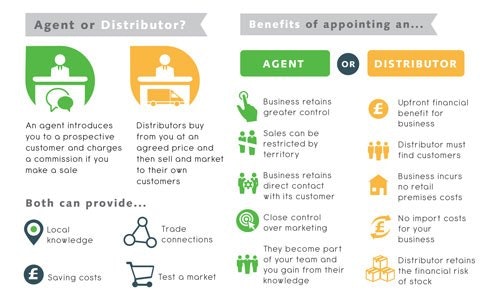
Taking responsibility for brokering the best deal on high quality products for the best price for their client, wholesale agents generally work with companies buying in very high volume.
Some industries where agents and brokers are commonplace are manufacturing, chemical, consumables and real estate. Agents make their money by taking a % cut on the overall deal.
1.8 Wholesale Meaning: What are Specialized Wholesalers?
An example of a specialized wholesale supplier would be a vendor who only sells towels. They are knowledgeable experts in their space, and only want to be known for selling that one specific product.
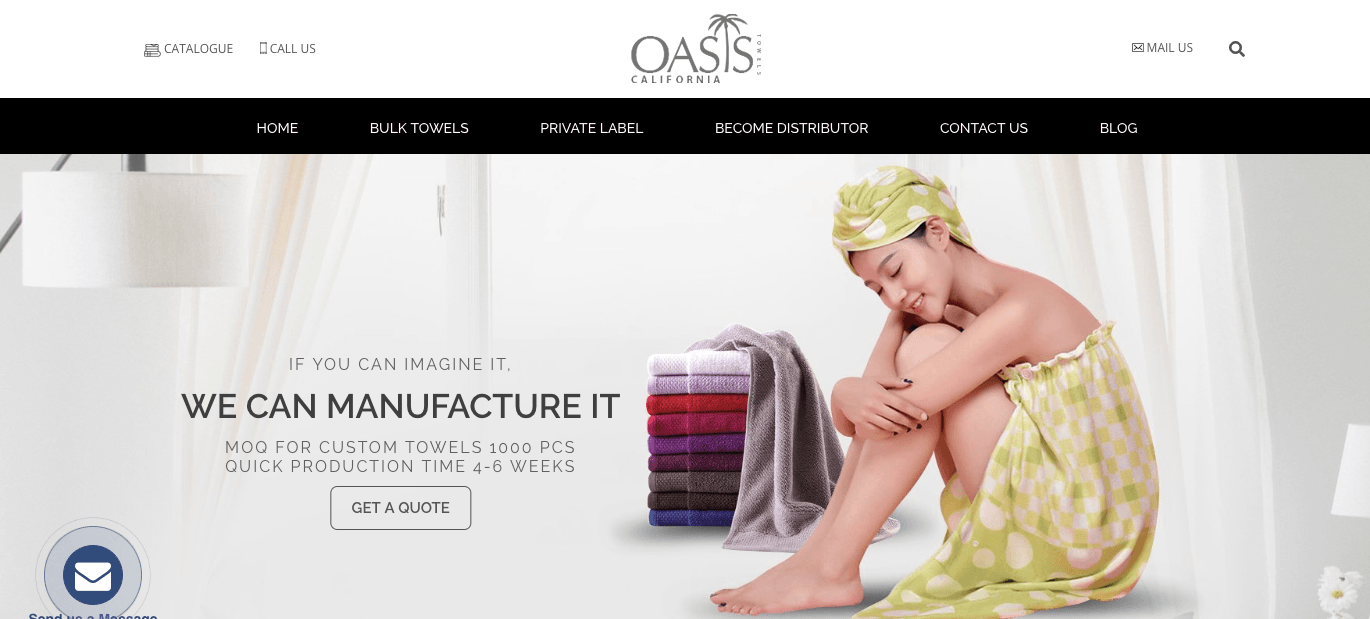
As the ecommerce industry grows, I’ve noticed that consumers are growing in their expectation of brands and retailers. Business owners are adapting to this demand by improving their product offerings and seeking out niche specialists to work with.
With this in mind, I predict there’s going to be a massive increase in demand for this type of specialist wholesaler.
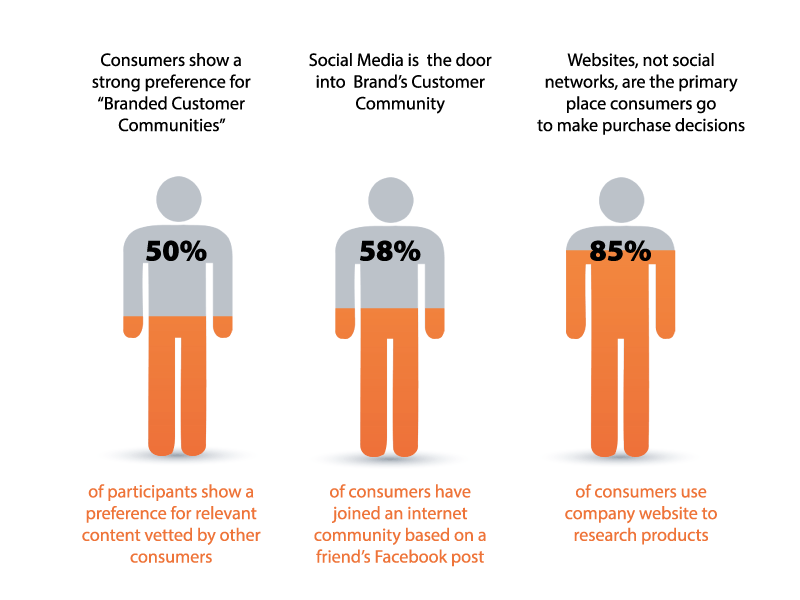
The thing is, specialists in any industry tend to be more in demand than generalists. And this can mean they have stricter criterion for who they work with, and tend to be harder to engage than some other types of supplier.



1.9 Wholesale Meaning: What are Merchant Wholesalers?
The merchant wholesaler is currently the most common type of wholesale supplier, especially in the rapidly growing private label industry. If you’re not careful, this type of wholesaler can also become your biggest competitor and an ever-present threat.
Let me explain.
Merchant wholesalers purchase bulk inventory directory from the manufacturer or distributor, holding this inventory within their own warehouse. They differ from traditional retail wholesalers because they take advantage of all the different sales and marketing channels currently available.
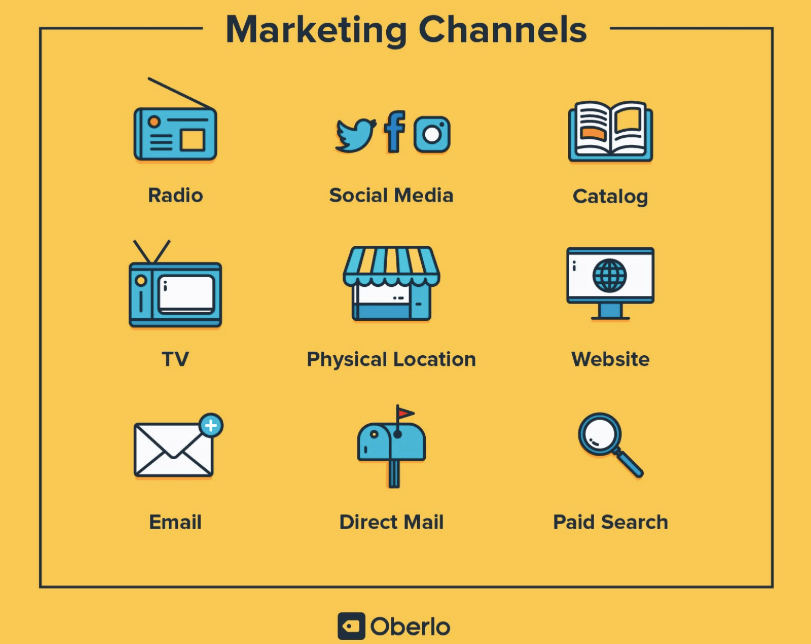
Let’s take a look at one notorious merchant wholesaler example, Shein.
As you’ll see they have no qualms in leveraging every sales channel available to them. They also operate under a number of different brand names, at least three that I’ve been able to find.
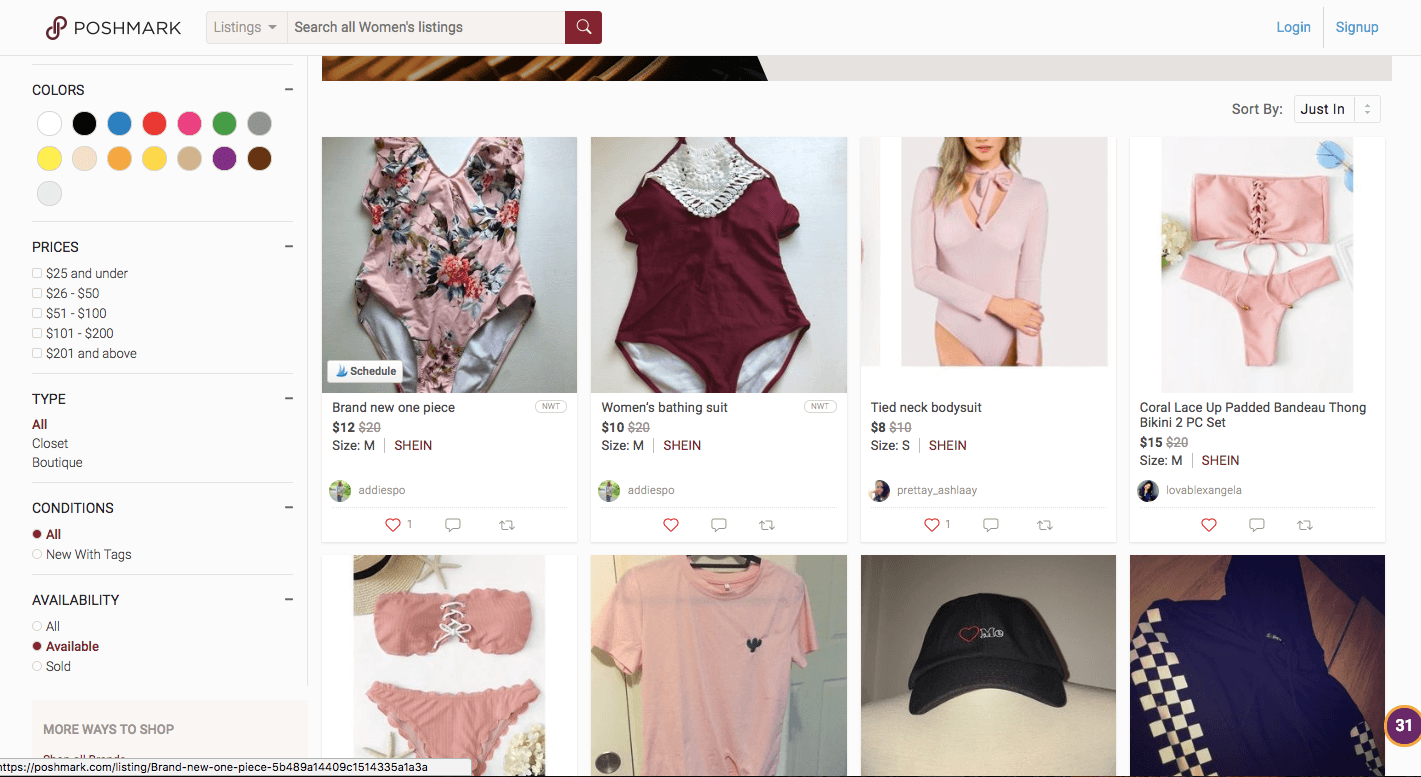
Shein selling retail on Poshmark.
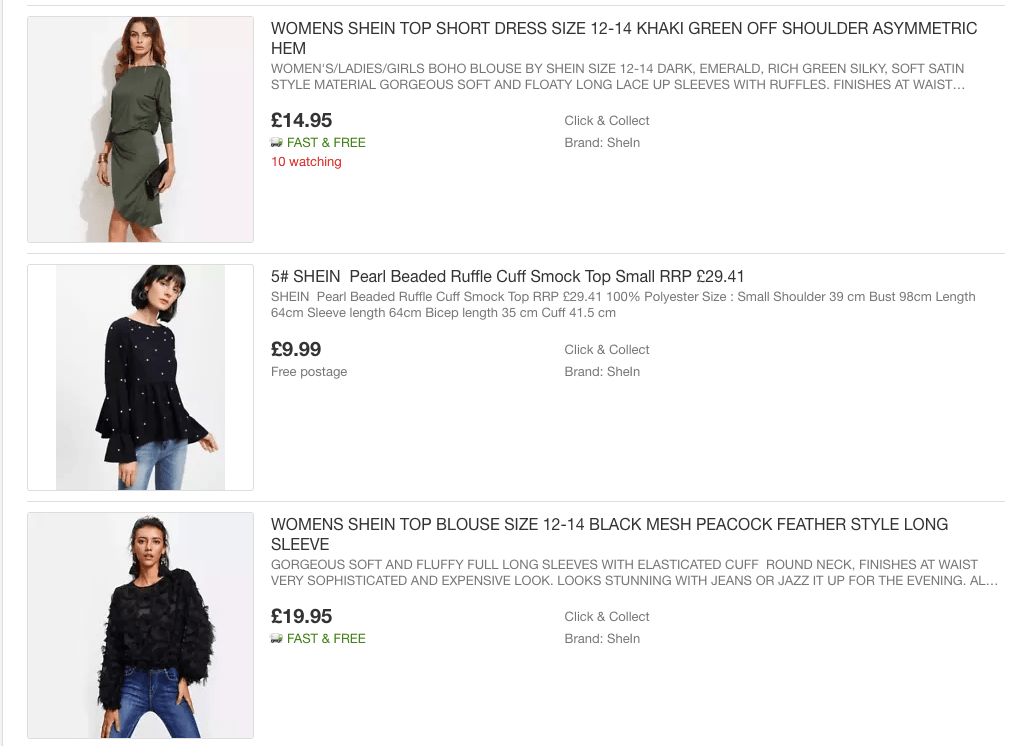
Shein selling retail on Ebay
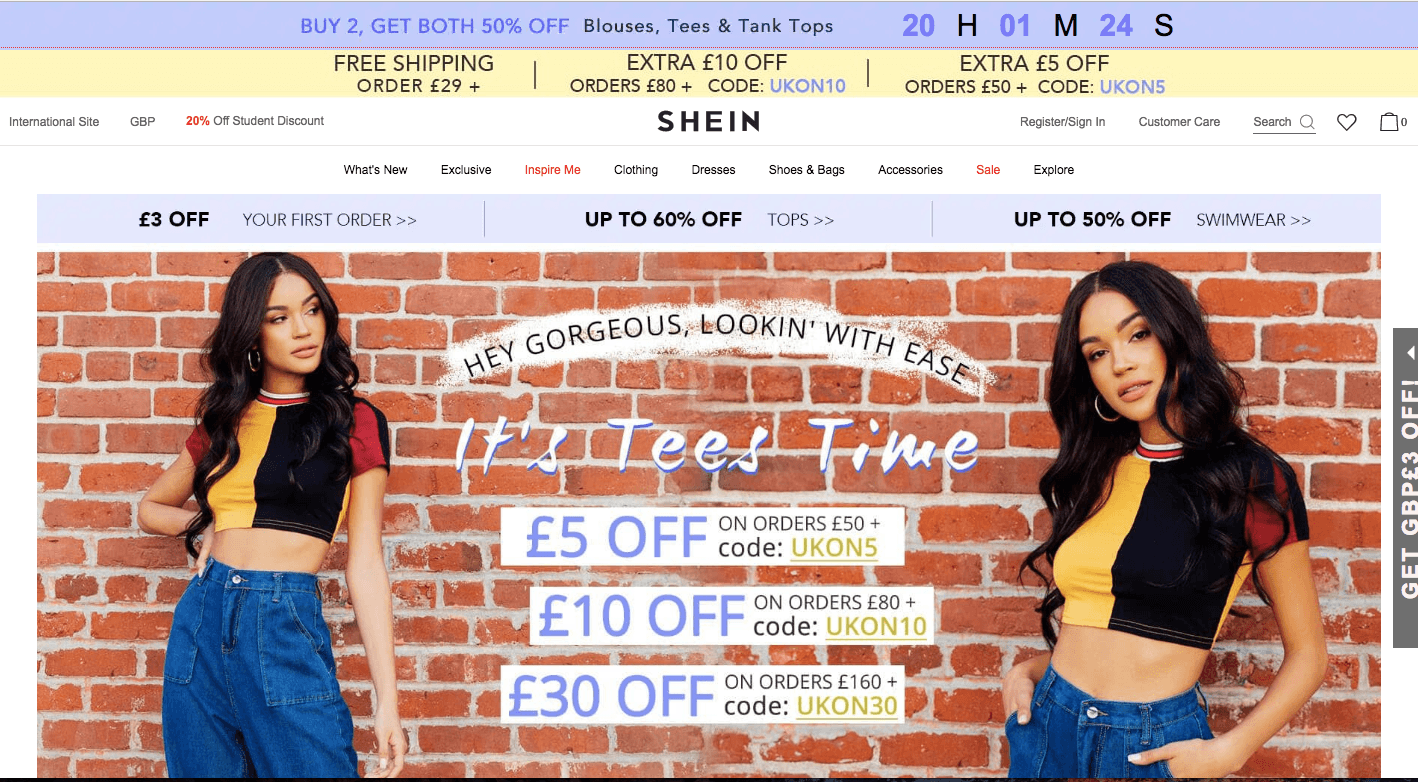
Shein selling retail on their own B2C ecommerce store.They also have a US store.
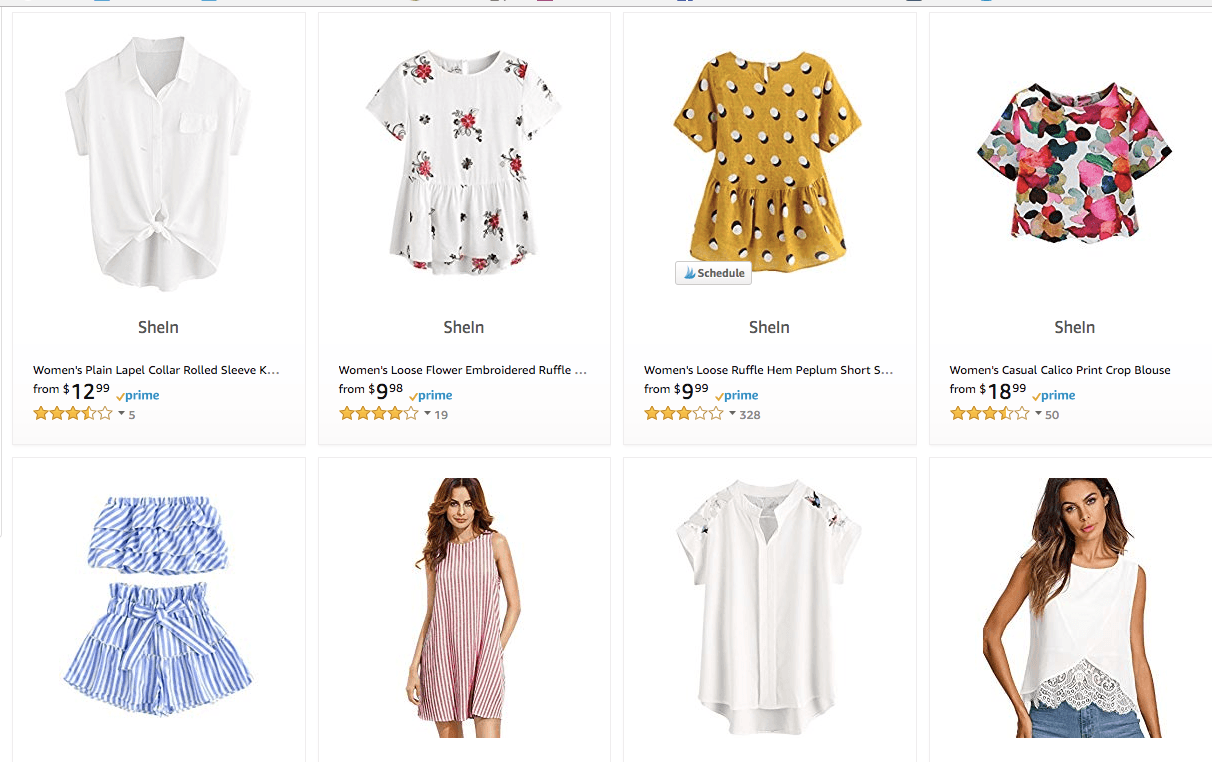
Shein selling retail on Amazon.
And here’s where it gets really crazy and confusing. It would seem that there are 398 gold verified wholesalers on Alibaba all selling Shein.
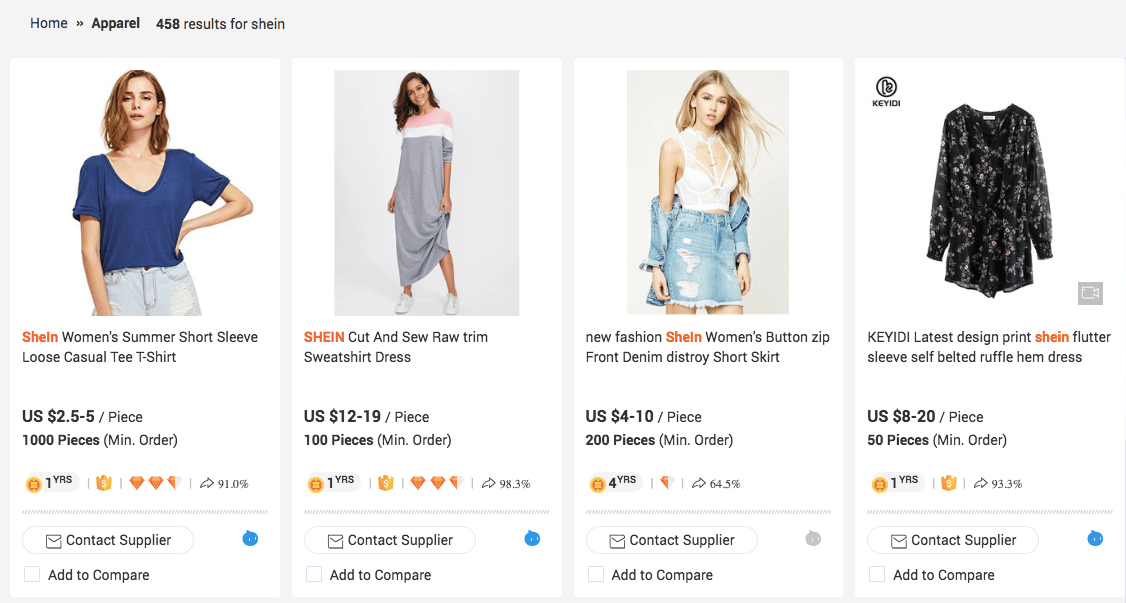
Shein selling wholesale on Alibaba
They also operate under a number of different names, selling primarily the same products with tiny variations in price depending on which brand name they’re operating under.
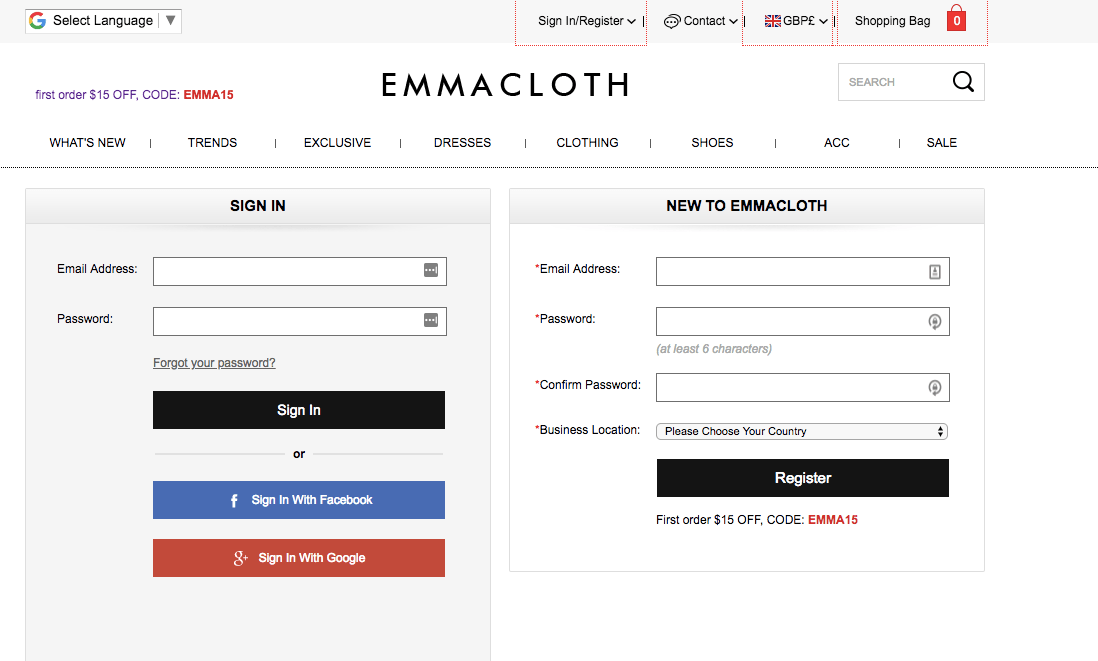
Shein are also Emma Cloth.
Just to confirm my suspicions and research were correct, I reached out to Shein regarding opening a wholesale account and was directed to create my wholesaler account over on a different website called Emma Cloth.
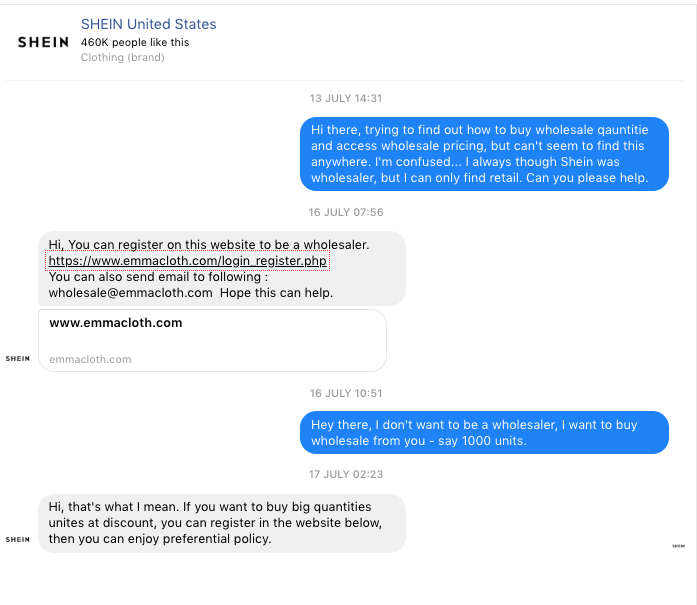
I see this happening all the time, so before you decide on a wholesale supplier make sure you know whether they’re directly competing for the exact same customer that you are.
[highlight] Expert Tip: Ask your wholesaler if they’re retailing the same products on their own website or other channels like Amazon, Ebay, Poshmark, etc.[/highlight]
You need to be mindful of this even if you don’t plan to use open-source sales channels like Amazon.
Customers often look at sites like Amazon and Ebay as a way of price shopping. And if your supplier is selling the same dress as you on Ebay for $25 cheaper, that’s where many of your potential customers will end up buying it.
Where at all possible, you really want to avoid competing against your wholesale supplier. Because, unless you have deep advertising pockets and a strong sales funnel to increase your order value from each customer, they will price-cut you out of business.
Related Content: Pricing Strategy For Ecommerce – is your pricing right?
